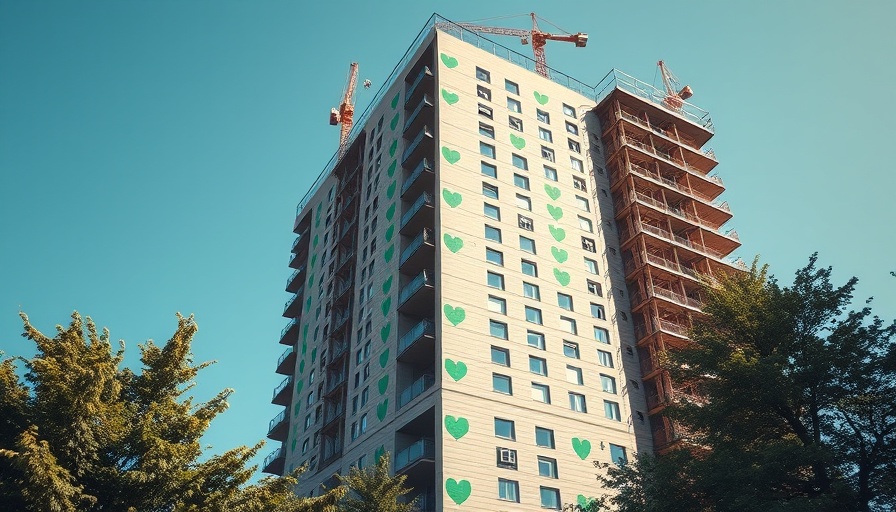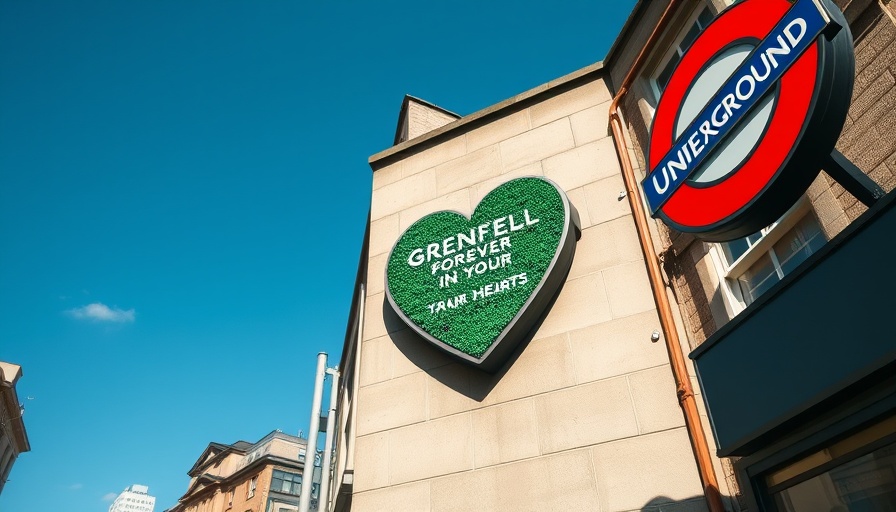
Eight Years Later: Why Aren't Grenfell Cladding Executives Held Accountable?
As the memories of the tragic Grenfell Tower fire continue to haunt the community, recent developments are reigniting the debate over corporate accountability in construction safety. Eight years post-disaster, numerous questions linger regarding the actions—or lack thereof—of those responsible for the cladding that claimed 72 lives. Lord Rooker, a former Labour minister, has challenged the government to explain why those labeled as ‘crooks’ for their role in this calamity remain free, pointing to new evidence that suggests the manufacturers were aware of the dangers their products posed long before the fateful night of June 14, 2017.
The Systematic Dishonesty in Building Regulations
The inquiry into the Grenfell disaster revealed shocking truths about the construction industry, highlighting a pattern of deceit among cladding companies. Reports suggest that not only did Arconic—a US-based manufacturing giant—know about the flammable nature of their cladding material, but they actively concealed these dangerous qualities from both consumers and regulatory bodies. Other companies such as Kingspan and Celotex similarly face condemnation for fostering unsafe market practices that prioritized profit over safety.
The Human Cost of Corporate Negligence
As community members walked in silence to commemorate the lives lost in the Grenfell tragedy, the emotional weight of the event was palpable. Karim Mussilhy, vice-chairman of Grenfell United, aptly stated, “As we stand here eight years on, the only decision this Government has made is to tear down the tower—our home.” This deeply personal sentiment reflects the collective anguish of a community that continues to seek justice, not just for the deceased, but for the living who have been affected by the government's inaction.
The Broader Implications for London Homeowners
For young homeowners in London, especially those in high-rise buildings, the ramifications of the Grenfell inquiry extend far beyond a singular disaster. The systemic failings highlighted in the report serve as a wake-up call regarding safety regulations and the importance of ensuring that modern living spaces meet high standards of fire safety. As more residents demand safer living conditions, the ongoing dialogue surrounding cladding policies and regulatory reforms will become increasingly vital.
What Action Is the Government Taking?
In response to the persistent inquiries about accountability, the government continues to investigate potential professional misconduct by several companies involved in the Grenfell inquiry. Recent reports suggest that seven firms are facing possible bans related to their practices, indicating a move towards stricter oversight in the construction industry. As the Cabinet Office assesses these corporations under the Procurement Act 2023, homeowners should stay informed about which companies end up getting barred from public contracts.
Moving Forward: Ensuring Safer Communities
While the government’s actions are still developing, it’s clear that community voices must play a significant role in shaping future policies. As discussions about building safety regulations evolve, young homeowners can take proactive steps by participating in local advocacy groups, attending town hall meetings, and staying updated on policy changes regarding building safety. Furthermore, engaging with grassroots initiatives can help build a stronger, more informed community dedicated to health and safety standards.
Take Action: Advocate for Change
The Grenfell tragedy is a stark reminder of the potential dangers lurking in our homes. It's crucial not to be passive observers in this process. By supporting initiatives aimed at reforming building regulations, you can help ensure others don’t suffer a similar fate. Join community discussions, sign petitions, and advocate for increased safety protocols—your voice can drive change.
 Add Row
Add Row  Add
Add 






Write A Comment